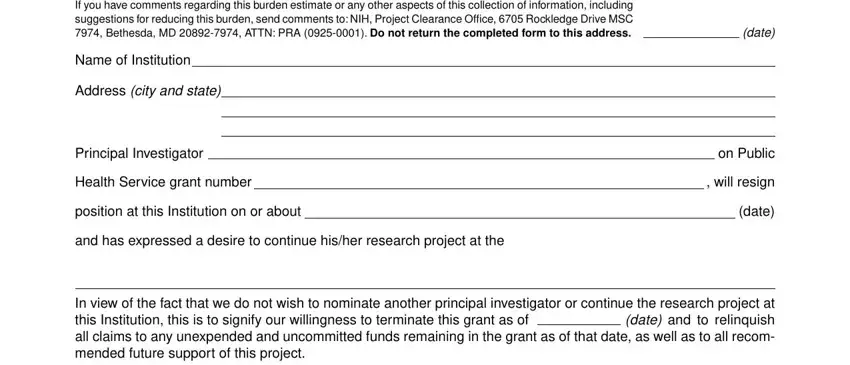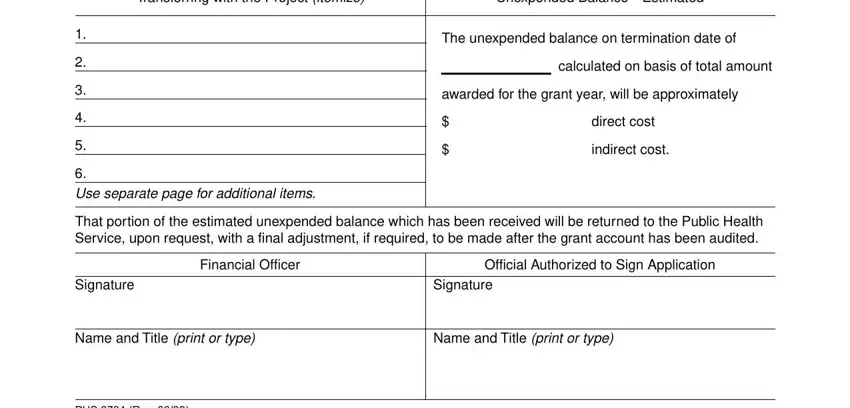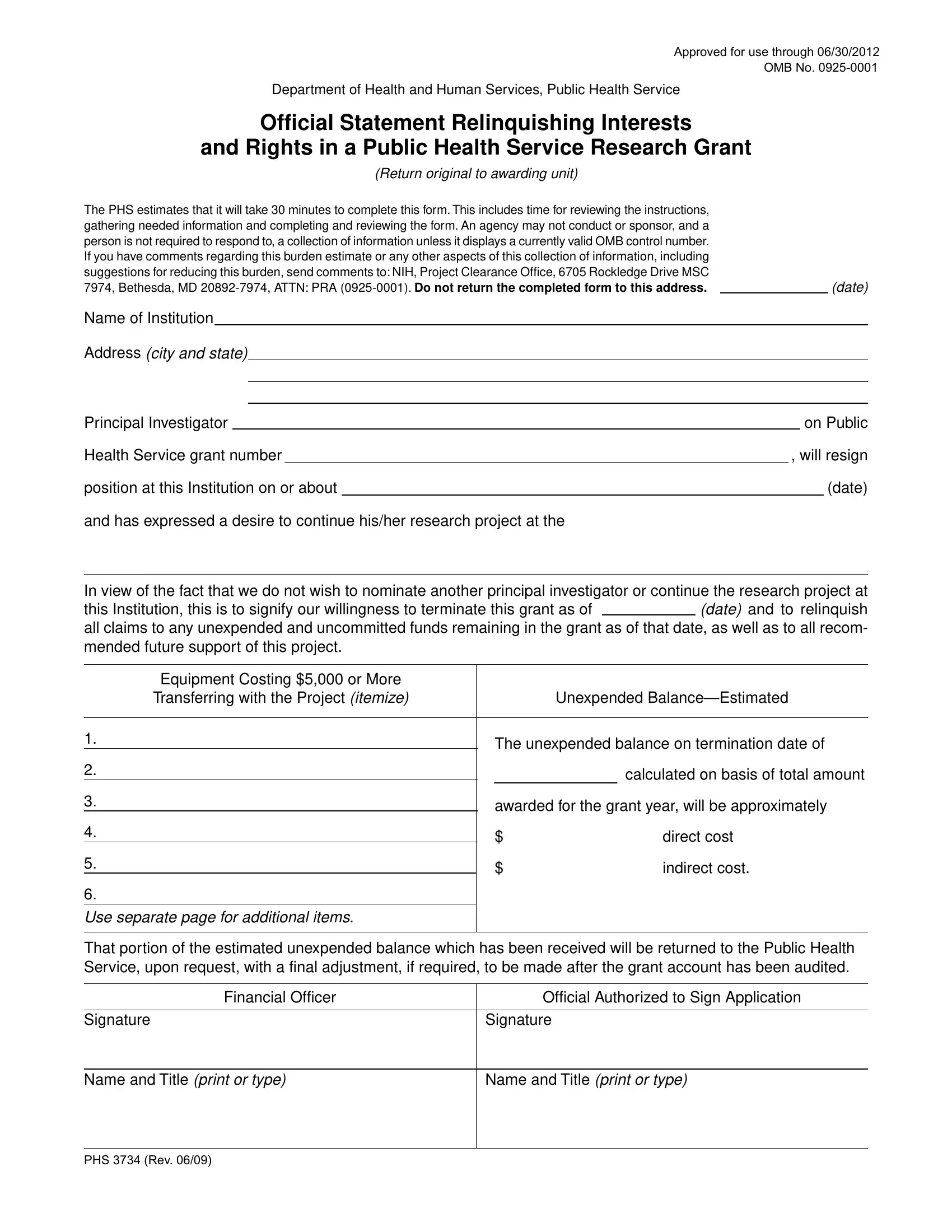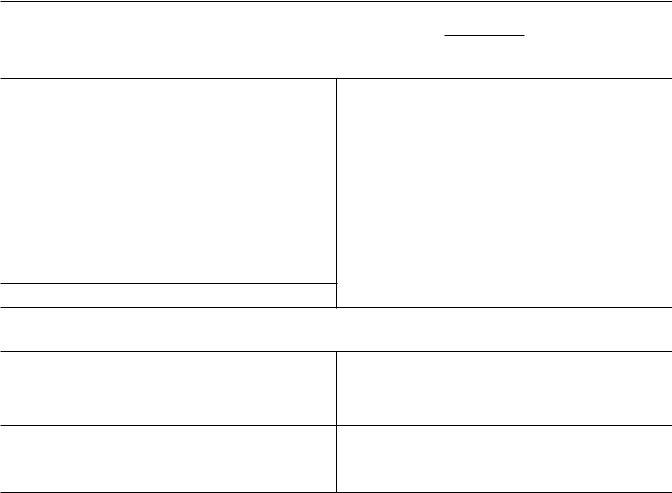Privacy Act Statement
The PHS maintains application and grant records as part of a system of records as defined by the Privacy Act: 09-25-0112, Grants and Cooperative Agreements: Research, Research Training, Fellowship, and Construction Applications and Related Awards.” The Privacy Act of 1974 (5 USC 522a) allows disclosures for “routine uses” and permissible disclosures.
Some routine uses may be:
1.To the cognizant audit agency for auditing.
2.To a Congressional office from a record of an individual in response to an inquiry from the Congressional office made at the request of that individual.
3.To qualified experts, not within the definition of DHHS employees as prescribed in DHHS regulations (45 CFR 5b.2) for opinions as part of the application review process.
4.To a Federal agency, in response to its request, in connection with the letting of a contract or the issuance of a license, grant, or other benefit by the requesting agency, to the extent that the record is relevant and necessary to the requesting agency’s decision on the matter;
5.To organizations in the private sector with whom PHS has contracted for the purpose of collating, analyzing, aggregating, or otherwise refining records in a system. Relevant records will be disclosed to such a contractor, who will be required to maintain Privacy Act safeguards with respect to such records.
6.To the sponsoring organization in connection with the review of an application or performance or administration under the terms and conditions of the award, or in connection with problems that might arise in performance or administration if an award is made.
7.To the Department of Justice, to a court or other tribunal, or to another party before such tribunal, when one of the following is a party to litigation or has any interest in such litigation, and the DHHS determines that the use of such records by the Department of Justice, the tribunal, or the other party is relevant and necessary to the litigation and would help in the effective representation of the governmental party.
a.the DHHS, or any component thereof;
b.any DHHS employee in his or her official capacity;
c.any DHHS employee in his or her individual capacity where the Department of Justice (or the DHHS, where it is authorized to do so) has agreed to represent the employee; or
d.the United States or any agency thereof; where the DHHS determines that the litigation is likely to affect the DHHS or any of its components.
8.A record may also be disclosed for a research purpose, when the DHHS:
a.has determined that the use or disclosure does not violate legal or policy limitations under which the record was provided, collected, or obtained;
b.has determined that the research purpose (1) cannot be reasonably accomplished unless the record is provided in individually identifiable form, and (2) warrants the risk to the privacy of the individual that additional exposure of the record might bring;
c.has secured a written statement attesting to the recipient’s understanding of; and willingness to abide by, these provisions; and
d.has required the recipient to:
(1)establish reasonable administrative, technical, and physical safeguards to prevent unauthorized use or disclosure of the record;
(2)destroy the information that identifies the individual at the earliest time at which removal or destruction can be accomplished consistent with the purpose of the research project, unless the recipient has presented adequate justification of a research or health nature for retaining such information; and
(3)make no further use or disclosure of the record, except (a) in emergency circumstances affecting the health or safety of any individual, (b) for use in another research project, under these same conditions, and with written authorization of the DHHS, (c) for disclosure to a properly identified person for the purpose of an audit related to the research project, if information that would enable research subjects to be identified is removed or destroyed at the earliest opportunity consistent with the purpose of the audit, or (d) when required by law.
The Privacy Act also authorizes discretionary disclosures where determined appropriate by the PHS, including to law enforcement agencies, to the Congress acting within its legislative authority, to the Bureau of the Census, to the National Archives, to the General Accounting Office, pursuant to a court order, or as required to be disclosed by the Freedom of Information Act of 1974(5 USC 552) and the associated DHHS regulations (45 CFR Part 5).




